The street is a poker term you’ll frequently encounter. Are you curious about the concept of a street in poker and its impact on strategy?
The phrase street alludes to the idea that playing poker is like 🏍️ strolling along a street. Every new street offers fresh information that helps you make more informed decisions.
👉 Streets are the cards dealt at specific points in a hand. The term is the same in all poker variants, including community, stud, and draw poker. However, the number and names of streets may differ.
For instance, there are five streets to consider while playing community games like Omaha and Texas Hold’em. The Flop counts for three streets when three cards are drawn together. You have five streets, including the Turn and the River, each with one card.
Poker Streets Basics
Using terms like Pre-flop, Flop, Turn, and River is common in community card games such as Texas Hold’em and Omaha. However, some players may also refer to the Turn and River cards as fourth and fifth streets.
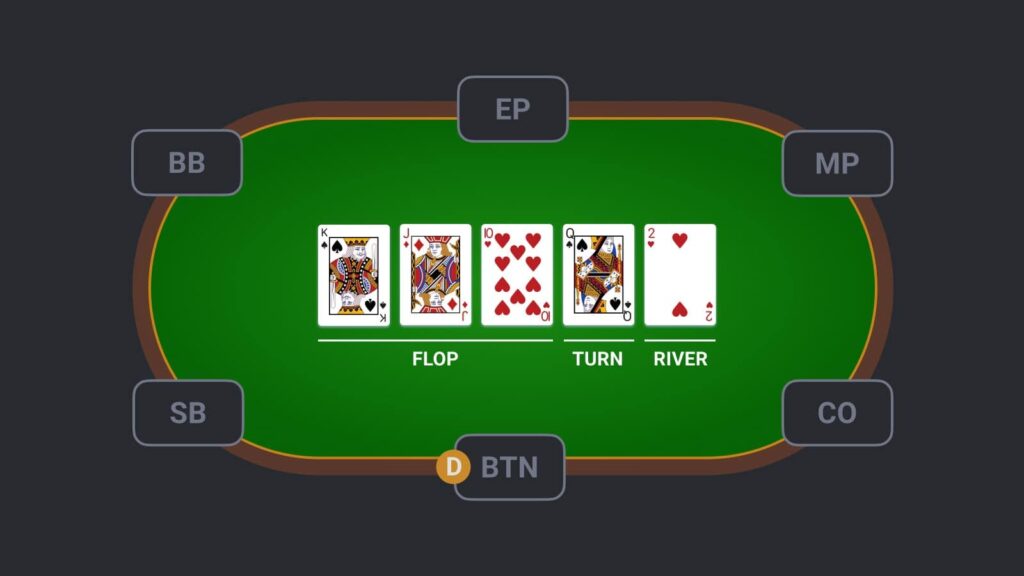
A street describes the card dealing, not the betting round. Hold ’em and Omaha games include four betting rounds: Pre-Flop, Flop, Turn, and River.
The Pre-Flop
The Pre-flop is the first betting round in community poker games. It’s a stage when players receive their hole cards, but no community cards have been dealt yet. The two players to the left of the Button post the blinds, and this dead money is a monetary incentive to begin the hand.
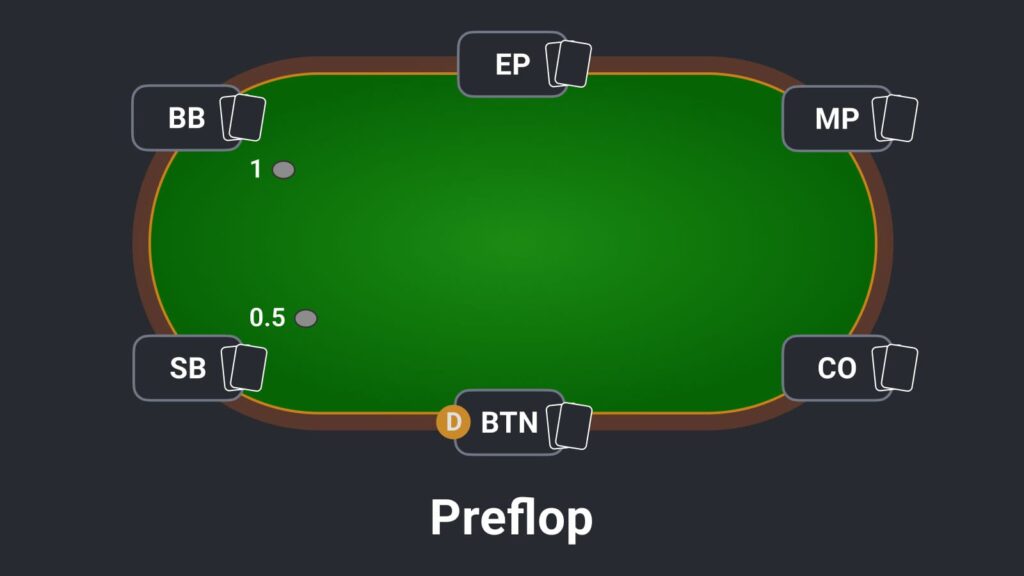
The preflop action starts with the player in the under-the-gun position and continues until all remaining players in the game call the largest raise. It is also possible that all players except one will fold their cards. In this case, the hand’s winner is already determined preflop. There will be no further streets in this hand.
The preflop may seem like an easy place to start, but the decisions you make throughout it can have a big impact on how you play the rest of the hand.
Lays The GroundWork
The preflop sets the foundation of how the hand will be played. You decide whether to call, raise, or fold, depending on:
Your choices depend significantly on where you sit at the table in early, middle, or late positions. For instance, you should play more tight when in an early position. On the other hand, when you are in a late position, you can observe your opponent’s moves before you make your own. It gives you more freedom, and you can play more hands profitably.
Defines Hand Ranges
Skilled players think not only about hole cards they have during preflop play. They also think about the different hands their opponents could have based on their actions. If you can estimate your opponent’s hand range, you can figure out whether your hand will likely be ahead or behind. Then, you can change your game plan accordingly.
For example: you see your opponent makes an open raise from an early position. Often it indicates that they have premium or at least very playable hand.
On average, a good player would open raise around 15% hands from an early position:
![]()
The Flop
In Omaha and Texas Hold’em variants, the Flop is the second betting round following the pre-flop. It’s a thrilling moment when the first three community cards are revealed on the board. These cards are displayed face up for all players.
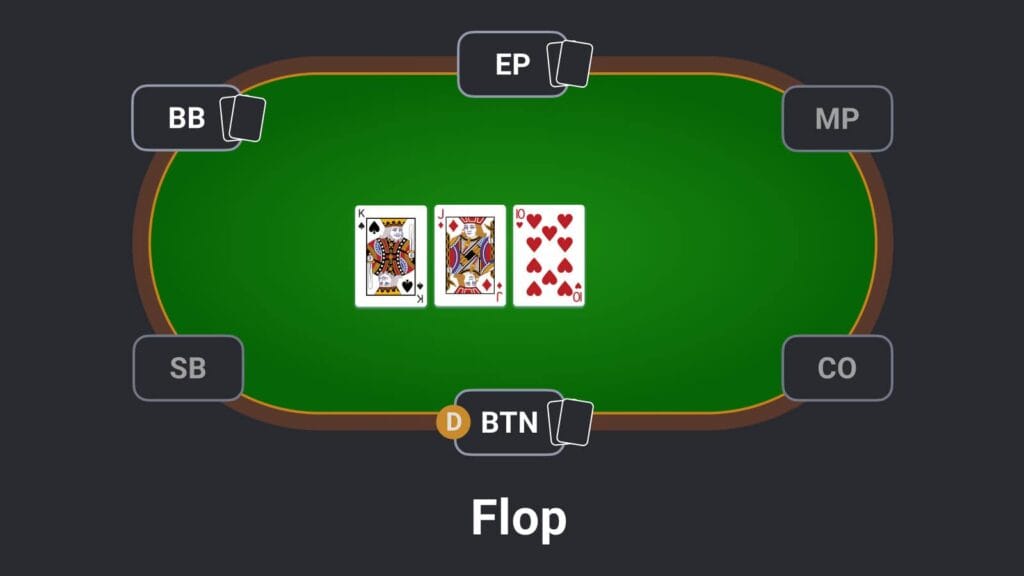
It is a make-or-break situation for each player at the poker table rather than simply another round of hand dealing.
Determines Strength of Your Hand
The flop is a crucial stage. It offers vital information that may help players determine the strength of their hand. Players may calculate their odds of holding a winning hand by adding the three community cards on the flop to their hole cards. This knowledge is crucial when choosing whether to fold, check, or keep betting or calling.
Compels Players to Adjust
Players are often compelled to alter their strategy in response to the flop, as it presents them with fresh information. Players need to consider not just their hands but also the possible hands that their opponents could be holding.
A key component of playing poker is adjusting to the flop, significantly affecting the hand’s outcome.
The Turn
Following the Flop betting round, a card is discarded from the deck, and a fourth community card is revealed. This card is called the Turn, also known as the Fourth Street.
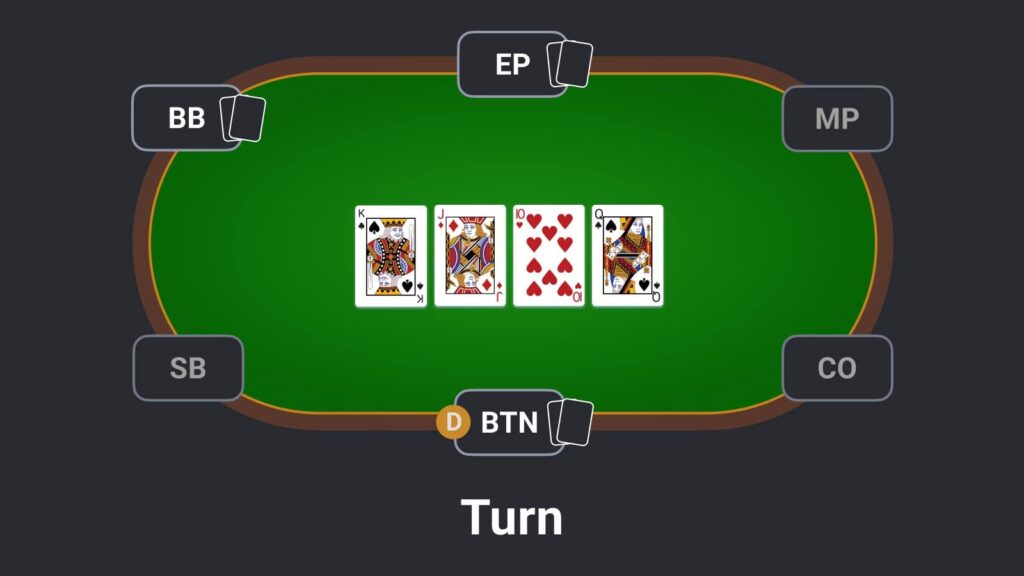
The Turn is an often overlooked betting round without nearly sufficient coverage. Most strategy publications concentrate on playing the flop and river properly. Still, they almost entirely ignore the Turn, seeing it as a bridge between two more crucial streets.
The pot has often increased throughout the Pre-flop and Flop betting rounds to the point where you must decide whether or not to commit to the hand. That’s why the Turn strategy is an essential component of every poker hand.
Drastically Changes the Odds of Hands
Besides adding another card to the board, the Turn card alters the odds of improving hands. Players may evaluate their odds of connecting a winning hand and have additional knowledge for further analysis.
For instance, a player’s chances to win rise dramatically 🚀 if the turn card completes the flush draw and they are chasing one. However, if the Turn card doesn’t improve their hand, they could be forced to rethink their approach and choose whether to fold or stay in the pot to the last street.
On the Turn, draw hands have significantly less equity than on the Flop. For example, in Texas Holdem, with a flush draw against a top pair, you had almost 40% equity on the Flop:
![]()
After you miss your card on the turn, you only have 20% left.
![]()
Your equity just dropped by 2x. Check out similar scenarios with Poker Odds Calculator.
Tests Players Skills
The turn is a crucial moment in the game, during which players’ abilities are challenged. On the Turn, players find themselves in a position that demands careful consideration of their opponents’ reactions, betting strategies, and overall approach to the game.
At this point, the bluffing techniques become even more essential. The pot is already big enough and there is only one street left for the players to improve their hands. So the Turn betting round is a great opportunity to put more pressure on your opponents.
The River
After the turn, the River round begins, revealing the fifth and last community card face-up on the table. It is truly the final opportunity for players to improve their hand.
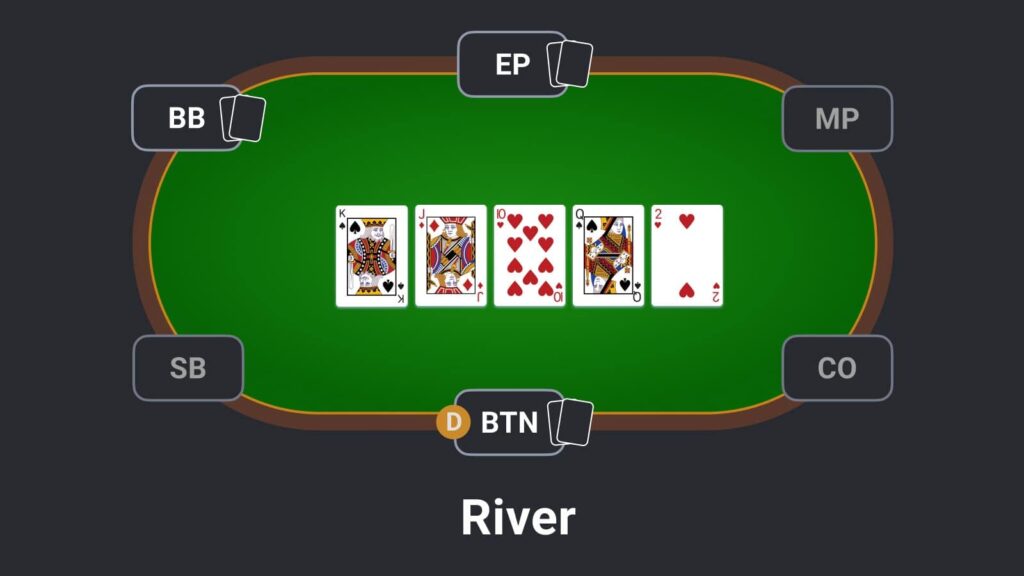
The river is a very interesting and technically difficult street, where players no longer have the opportunity to improve their hands. All players have already built their combinations, and only one betting round is left before Showdown.
Forces Expensive Decisions
Clearly, after numerous betting rounds, the pot has grown significantly. River decisions are very expensive, and you may feel an emotional desire to win the pot. You may also feel pressure as you have already invested a lot of money in the pot. Try to 🧠 maintain a clear mind and not let emotions influence your decisions.
However, remember that your opponents are in the same situation. Therefore, bluffing on the River can be a very risky but very profitable action. The main thing is to choose the right situations and good bet sizing.
💡 Be careful with your value bets: a hand that was strong on the Flop does not always remain so on the River.
Causes Tilt
The stupidest and most expensive mistakes in poker are made on the River. A typical problem for players is when they cannot fold their cards, although they understand that they will most likely lose at showdown. On the River, more than on any other street, psychology is very important.
Conclusion
To do well in poker, you must understand what streets are and how they affect your strategy.
From the preflop to the river, each street brings its opportunities and challenges. By getting good at how each stage works, you can make smarter choices, adjust to new information, and improve your overall poker game.